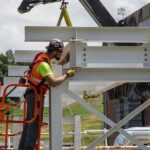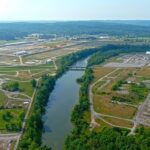The U.S. Department of Energy Oak Ridge Office said last week it had received funding for reimbursable work totaling $442 million during the last fiscal year, which ended in September.
The Oak Ridge National Laboratory performed about $232 million of the work, a press release said. The remaining $210 million of the work was conducted at the Oak Ridge Institute for Science and Education.
Under its Work for Others program, DOE said, outside entities can use national laboratories to solve problems when the work is related to DOE missions and the entities cannot do the work elsewhere.
It said the WFO program gives DOE an opportunity to build research and development partnerships with other federal agencies, academia, and the private sector, among other things.
“The Work for Others program leverages DOE’s national laboratories’ highly specialized and unique expertise and equipment not available elsewhere in the U.S., allowing important contributions to technology advancements in private industry and other federal agencies,” said DOE’s ORNL Site Office Manager Johnny Moore. “The DOE national laboratories are national, science, technology, and engineering assets. These core capabilities should be made available to U.S. industries and universities to strengthen their technology base and improve their international competiveness.”
The press release said the WFO program has a diverse field of programs. During Fiscal Year 2012, OSO approved 3,852 funding agreements that supported external entities. Federal agencies such as the Department of Defense, the Department of Health and Human Services, the Food and Drug Administration, the Nuclear Regulatory Commission, the Department of Homeland Security, and the Environmental Protection Agency supplied 92 percent of the funding received in FY 2012. The remaining 8 percent of the total funding was used to fund projects carried out by non-federal entities such as private industry and universities.
Highlights from this year’s work include:
- ORNL’s development of core metal combustor technology used in low-cost, low-emission clean cookstoves for the developing world;
- ORNL developing and testing superhydrophobic coating technologies for military applications used by the Department of Defense; and
- ORISE continuing science education and research participation programs.





Leave a Reply